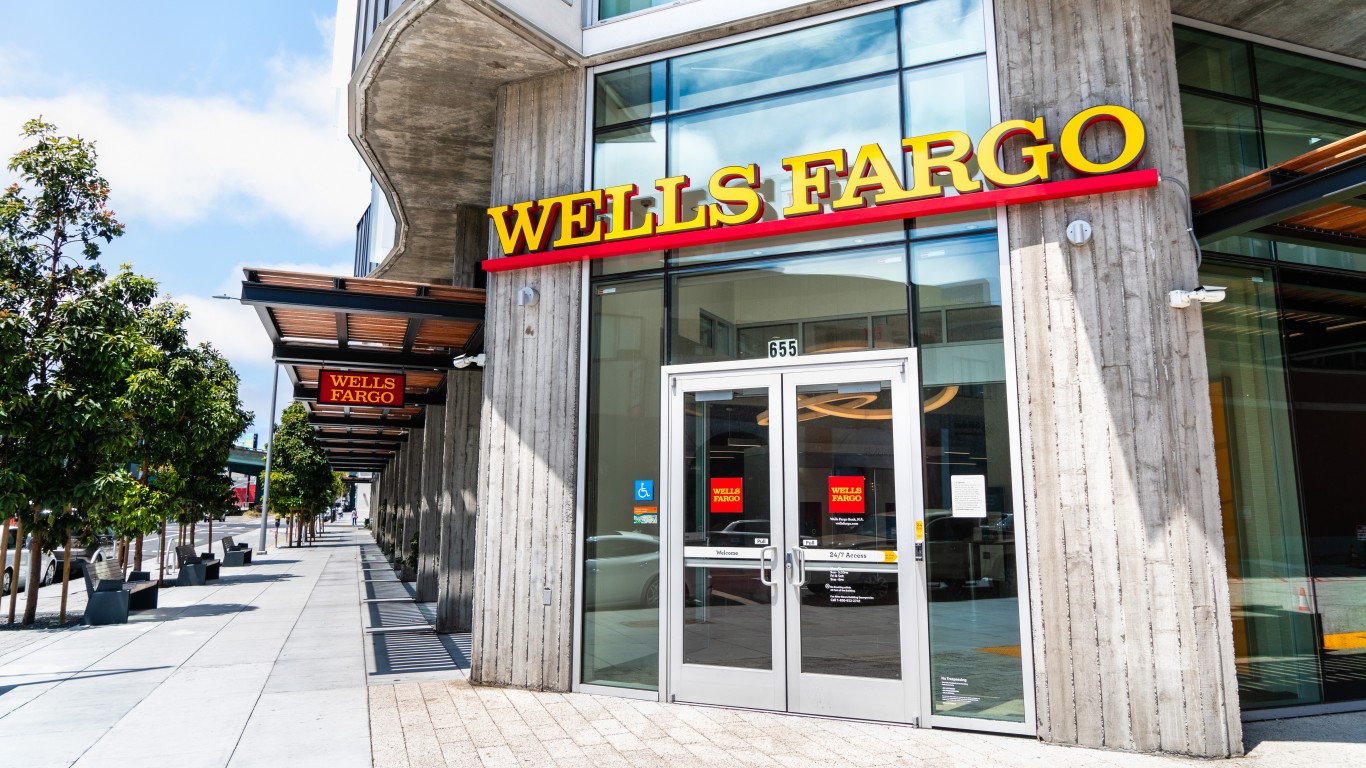Banking, finance, and taxes
This Bank Charges $1.3 Billion in Overdraft Fees

Published:

The Biden administration wants to cut overdraft fees, which the Consumer Financial Protection Bureau calls overdraft/non-sufficient fund (NSF) fees. Some in Congress oppose the move. Banks make a great deal of money on the practice, so lowering fees would affect them financially.
In 2022, overdraft fees across America’s largest banks totaled $7.7 billion. Banks with assets of $1 billion have to report this data. Wells Fargo & Co. (NYSE: WFC) received $1.28 billion in overdraft fees for the year, and JPMorgan Chase & Co. (NYSE: JPM) received $1.25 billion. (Here are 15 savings accounts that offer ultra-high yields.)
On January 17, the White House said it would propose a new rule to cut these fees substantially. Its announcement said, “For too long, some banks have charged exorbitant overdraft fees—sometimes $30 or more—that often hit the most vulnerable Americans the hardest, all while banks pad their bottom lines.” The administration stated this would save families $150 per year, which equals $350 billion nationwide.
The chair of the House Financial Services Committee, Patrick McHenry, and the chair of the Subcommittee on Financial Institutions and Monetary Policy, Andy Barr, attacked the proposal. They said Americans need to have overdraft options. They provide many consumers with a needed buffer when their liquidity is low. The pair said, “Overdraft protection is a short-term liquidity product that can aid consumers in making ends meet when a deposit account balance is low, particularly for those consumers who are unable to qualify for traditional credit products.” They added that consumers do not have to keep money in accounts with these fees.
No matter how the battle between some members of Congress and the administration turns out, if the fees are lowered, the nation’s largest banks could lose billions of dollars in income.

These are the banks that received the most from overdraft fees in 2022.
Retirement planning doesn’t have to feel overwhelming. The key is finding expert guidance—and SmartAsset’s simple quiz makes it easier than ever for you to connect with a vetted financial advisor.
Here’s how it works:
Why wait? Start building the retirement you’ve always dreamed of. Click here to get started today!
Thank you for reading! Have some feedback for us?
Contact the 24/7 Wall St. editorial team.